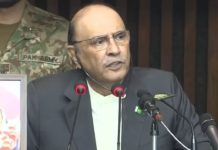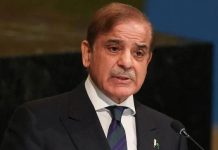Understanding the Performance and Functioning of the Pakistan Electronic Media Regulatory Authority (PEMRA) Part 1
Imran Ghaznavi
In today’s fast-paced digital era, electronic media holds sway as a dominant force, shaping public opinion, disseminating information, and molding societal norms. At the helm of regulating this influential medium in Pakistan stands the Pakistan Electronic Media Regulatory Authority (PEMRA). Established in 2002 and fortified by the PEMRA Act of 2007, this regulatory body shoulders the monumental responsibility of overseeing Pakistan’s electronic media landscape, ensuring adherence to legal and ethical standards while championing the principles of freedom of expression and content diversity. Let’s embark on a comprehensive exploration of PEMRA’s performance and operational dynamics.
Operating within the parameters set forth by the PEMRA Ordinance of 2002 and the subsequent PEMRA Act of 2007, the authority’s mandate spans television, radio, and various electronic media platforms, including cable television networks, satellite channels, and FM radio stations.
Central to PEMRA’s mission is the issuance of licenses to media outlets, coupled with vigilant monitoring to ensure adherence to regulatory standards and codes of conduct. PEMRA strives to strike a delicate balance, ensuring that electronic media content reflects cultural, religious, and societal values while fostering an environment conducive to freedom of expression and creative exploration. Additionally, PEMRA remains unwavering in its commitment to shielding consumers from objectionable content, deceptive advertisements, and unethical business practices, thereby safeguarding public interests. Acting as a mediator for conflict resolution, PEMRA facilitates the resolution of disputes among media entities, stakeholders, and the general populace, fostering a harmonious media ecosystem. Furthermore, recognizing the intrinsic value of diversity, PEMRA champions the representation of varied perspectives, languages, cultures, and regional nuances within electronic media programming.
A critical evaluation of PEMRA’s recent performance reveals both commendable achievements and areas for improvement. While the authority has made significant strides in licensing electronic media outlets, criticisms have emerged regarding the enforcement of regulations, with occasional allegations of selective application and leniency toward influential media conglomerates. Despite instituting codes of conduct and regulatory frameworks, PEMRA has encountered challenges in curbing the broadcast of contentious or objectionable content on television channels, prompting reflections on the efficacy of its enforcement mechanisms. Nonetheless, PEMRA’s efforts to address consumer grievances concerning objectionable content and unfair business practices have been acknowledged, albeit with recommendations for streamlining complaint mechanisms and expediting grievance redressal processes.
Moreover, PEMRA’s endeavors to promote diversity within media content have been appreciated, particularly through the elevation of regional languages, cultural representation, and inclusivity but it’s too little and a lot has to be done. As, hurdles persist in ensuring equitable access to media platforms for all segments of society. The authority has also faced scrutiny regarding transparency and accountability, with concerns raised about the potential influence of political and commercial interests on regulatory decisions. Consequently, fortifying transparency measures and maintaining independence from external pressures emerge as imperatives for bolstering public trust in PEMRA’s operations.
Looking ahead, PEMRA must focus on strengthening regulatory enforcement, enhancing transparency, investing in capacity building, fostering engagement with stakeholders, and adapting to technological changes. In essence, PEMRA occupies a pivotal role in sculpting Pakistan’s electronic media landscape, reconciling freedom of expression with societal values and public welfare. While commendable progress has been made, a relentless pursuit of improvement, transparency, and accountability is essential to address the evolving challenges of the media sphere and serve the best interests of the Pakistani populace.
The author is a senior media and regulatory practitioner with academic excellence and over 34 year of industry experience. Can be reached at [email protected] website: www.imranghaznavi.com

















